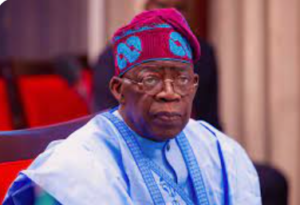 Doyin Okupe, a former aide to ex-President Goodluck Jonathan, has advised President Bola Tinubu to declare a six-month state of emergency on Nigeria’s economy and suspend the implementation of the 2024 budget.
Doyin Okupe, a former aide to ex-President Goodluck Jonathan, has advised President Bola Tinubu to declare a six-month state of emergency on Nigeria’s economy and suspend the implementation of the 2024 budget.
Okupe also suggested reducing the pump price of Premium Motor Spirit (PMS) to between N300 and N400, while aiming for an exchange rate of N750 per dollar. These measures, according to Okupe, would provide the government with the necessary space for strategic planning and resource reallocation.
Notably, the price of fuel was below N200 per litre until May 29, 2023, when Tinubu announced an end to the subsidy regime in his inaugural speech. Since then, coupled with the floating of the naira, the economy has faced challenges, resulting in hardships for the masses. Although the government has implemented palliative measures to mitigate the impact of these economic decisions, the cost of food items continues to rise.
In a statement issued on Tuesday, Okupe urged Tinubu to take decisive action in response to the ongoing economic challenges, which have led to a surge in the cost of living for citizens. He emphasized the need for a recalibration to address the pressing economic concerns, stating, “A temporary pause in the budget execution can provide the space needed for strategic planning and resource reallocation.”
Okupe also highlighted the security threats that have exacerbated the economic woes and called for the mobilization of the Army and other security agencies. He emphasized the importance of quelling insecurity to create a conducive environment for economic recovery.
Additionally, Okupe urged the President to employ all available means to halt rampant oil theft, as it is crucial for safeguarding the nation’s economic resources and fostering stability. He recommended increasing oil production capacity to 3 million barrels per day, with a specific focus on efficient operations by the Nigerian National Petroleum Company Limited and the Dangote Oil Refinery. Okupe also suggested regulating fuel prices, aiming for a range of N300 to N400 per litre, and maintaining a maximum exchange rate of N750 to $1. Stabilizing these key economic indicators, he argued, is crucial for restoring confidence and affordability.
Furthermore, Okupe addressed food security concerns and recommended the massive importation of staple food items. He advocated for a comprehensive approach involving all tiers of government to contribute and participate in the process.

